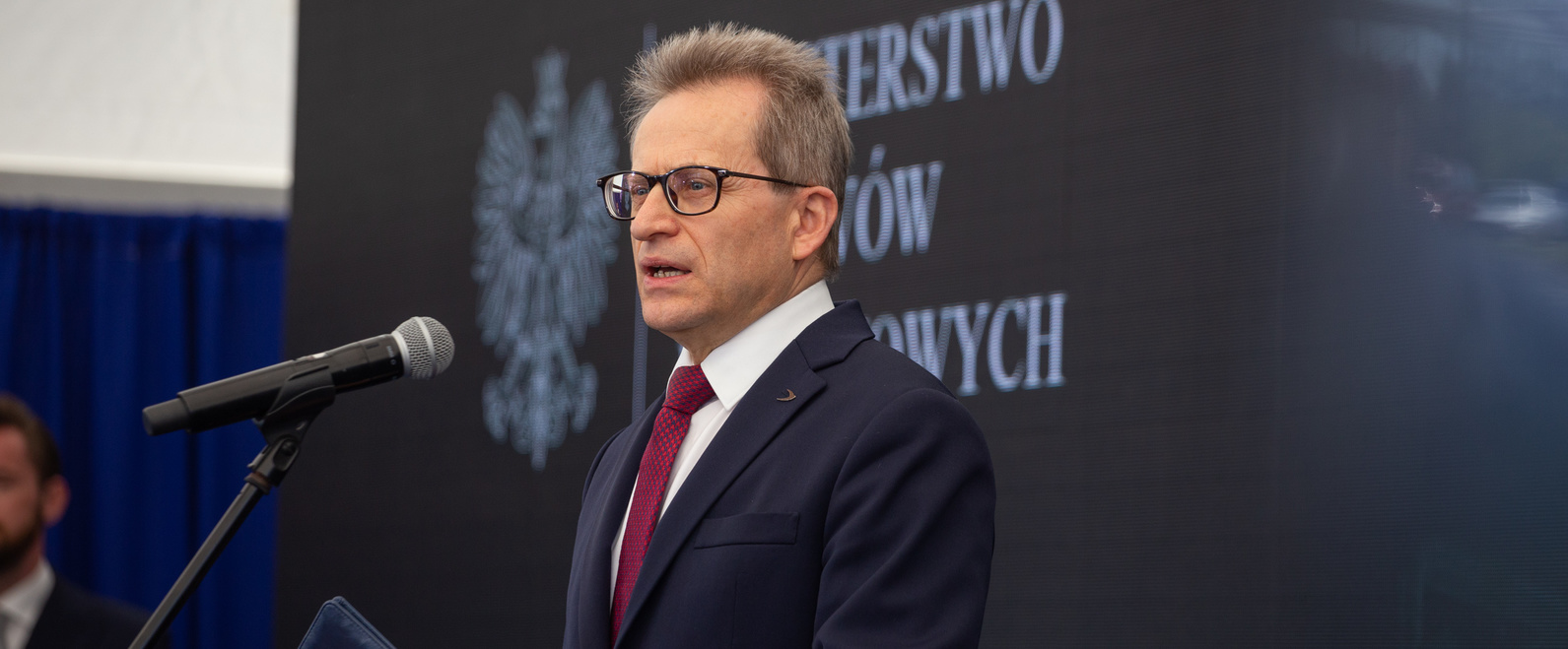
Grupa Azoty S.A., Grupa Azoty ZCh Police, Grupa Azoty Polyolefins, Grupa LOTOS, Hyundai Engineering Co., and Korea Overseas Infrastructure & Urban Development Corporation (KIND) have signed agreements for the financing of the Polimery Police project. Also, Grupa Azoty Polyolefins, the SPV formed to implement the project, which is of key importance to the entire chemical industry, has signed a credit facility agreement with a syndicate of domestic and foreign financial institutions.
The total project budget is estimated at over EUR 1.5bn. The construction phase is scheduled for completion in 2022. ‘Today marks the end of many months of work to raise funding for Polimery Police, one of the largest industrial projects currently under way in Poland and wider Europe. The project is in progress, with Hyundai, our equity partner and general contractor, having entered the construction site earlier this year. Polimery Police is important to us and to the entire economy. It will help us to strategically diversify our revenue sources and Poland to turn from a net importer to a net exporter of polypropylene,’ said Wojciech Wardacki, President of the Grupa Azoty S.A. Management Board.
The press conference held in Police to announce the signing of the agreements was attended by Polish President Andrzej Duda and Minister of State Assets Jacek Sasin.
‘A mechanism was created to implement a project worth PLN 7bn. It really is an incredibly huge and cost-intensive project. But what makes it so cost-intensive is that it is a world-class state-of-the-art facility,’ noted President Andrzej Duda.
‘Today’s event is a great example of bold yet responsible investments made by Poland’s state-owned companies. The pursuit of ambitious goals that Polish companies set themselves not only guarantees their stable growth but also strengthens the national economy and makes Polish capital recognised and appreciated abroad. Therefore, it’s vital that companies continue their day-to-day operations while moving forward with their capex programmes despite economic headwinds created by the coronavirus pandemic,’ said Minister of State Assets Jacek Sasin.
Grupa LOTOS will contribute PLN 500m to the project, with Hyundai and KIND jointly contributing a similar amount of USD 130m. Of those amounts, Grupa LOTOS’ equity investment in Grupa Azoty Polyolefins will be PLN 300m, with the Korean partners investing USD 78m (USD 73m from Hyundai and USD 5m from KIND). The balance of the capital contributions from Grupa LOTOS and KIND (PLN 200m and the equivalent of USD 52m, respectively) will be in the form of subordinated loans.
‘The project is of strategic importance to the Polish economy. We focus on innovative and forward-looking projects, such as Polimery Police. Having an extensive track record of arranging and implementing large and complex capex projects, Grupa LOTOS and its employees will support Polimery Police with their expertise and unique competencies,’ said Paweł Jan Majewski, President of the Grupa LOTOS Management Board.
Additional funding for the project will also be provided by Grupa Azoty S.A. and Grupa Azoty ZCh Police, with their contributions ultimately totalling PLN 1,832m, including 60% equity and 40% subordinated loans. Once all the contributions provided for in the agreement have been made by the partners, Grupa Azoty Polyolefins’ share capital will increase to about PLN 1.7bn, with its shareholding structure comprising Grupa Azoty S.A. (30.52%), Grupa Azoty ZCh Police (34.41%), Grupa LOTOS (17.3%), Hyundai (16.63%), and KIND (1.14%).
Under the credit facility agreement, the syndicate of financial institutions comprising Bank Pekao, PKO BP, BGK, mBank, Alior Bank, BOŚ Bank, BNP Paribas Bank Polska, Santander Bank Polska, the European Bank for Reconstruction and Development, Industrial and Commercial Bank of China (Europe) Poland Branch, PZU, PZU na Życie and PZU Fundusz Inwestycyjny Zamknięty Aktywów Niepublicznych BIS 2 will provide Grupa Azoty Polyolefins with a long-term senior credit facility of EUR 487.8m and USD 537.7m. GA Polyolefins will also receive a VAT loan to finance VAT payments during the construction phase and a facility to finance working capital needs during the operation phase (PLN 150m and USD 180m).
‘We are extremely pleased to have been able to coordinate fundraising for one of Poland’s largest projects in recent years. We would like to thank all the syndicate members, external advisers and the project team for their cooperation. The closing of the transaction would not have been possible without the smooth cooperation of all parties involved. This was an immense challenge for all of us, but we were able to navigate it effectively with the help of specialised teams and extensive experience of each institution. The successful consummation of the transaction demonstrates we executed the process in line with standards at the highest world level,’ said Leszek Skiba, acting CEO of Bank Pekao.
The polypropylene unit will have an annual production capacity of 437,000 tonnes. Estimates put annual polypropylene demand in Europe at the time of start-up of the Police-based plant at 12 million tonnes. Polypropylene is one of the main types of plastic available, representing just under 20% of the entire plastics market in Europe. Due to its properties (thermal stability, chemical resistance, low density, transparency, etc.), it finds a wide range of applications in most branches of the economy, including the packaging, textile, medical, automotive and construction sectors.